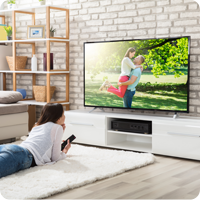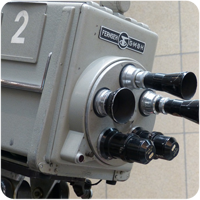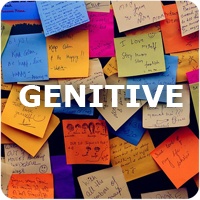Het arrangement 11.3 Newspapers and television - hv12 is gemaakt met Wikiwijs van Kennisnet. Wikiwijs is hét onderwijsplatform waar je leermiddelen zoekt, maakt en deelt.
- Auteur
- Laatst gewijzigd
- 11-05-2025 19:27:55
- Licentie
-
Dit lesmateriaal is gepubliceerd onder de Creative Commons Naamsvermelding-GelijkDelen 4.0 Internationale licentie. Dit houdt in dat je onder de voorwaarde van naamsvermelding en publicatie onder dezelfde licentie vrij bent om:
- het werk te delen - te kopiëren, te verspreiden en door te geven via elk medium of bestandsformaat
- het werk te bewerken - te remixen, te veranderen en afgeleide werken te maken
- voor alle doeleinden, inclusief commerciële doeleinden.
Meer informatie over de CC Naamsvermelding-GelijkDelen 4.0 Internationale licentie.
Aanvullende informatie over dit lesmateriaal
Van dit lesmateriaal is de volgende aanvullende informatie beschikbaar:
- Toelichting
- Deze les valt onder de arrangeerbare leerlijn van de Stercollecties voor Engels voor havo en vwo, leerjaar 1 en 2. Dit is thema 11 'Press and media'. Het onderwerp van deze les is: Newspapers and television. In deze les worden aspecten van kranten en televisie besproken zoals Britse media, 'binge-watching', televisieseries en tv-kijkgewoonten. In de grammaticaopdracht wordt de genitive/bezitsvorm behandeld.
- Leerniveau
- VWO 2; HAVO 1; VWO 1; HAVO 2;
- Leerinhoud en doelen
- Engels;
- Eindgebruiker
- leerling/student
- Moeilijkheidsgraad
- gemiddeld
- Studiebelasting
- 1 uur 40 minuten
- Trefwoorden
- arrangeerbaar, binge-watching, britse media, engels, genitive/bezitsvorm, hv12, newspapers and television, stercollectie, televisieseries, tv-kijkgewoonten




 British newspaper
British newspaper

 Study the vocabulary. (10 minutes)
Study the vocabulary. (10 minutes)


 TV Role play
TV Role play
 What have you learned in this double period?
What have you learned in this double period?